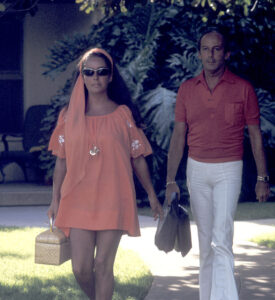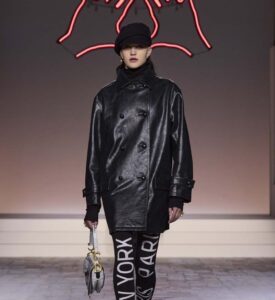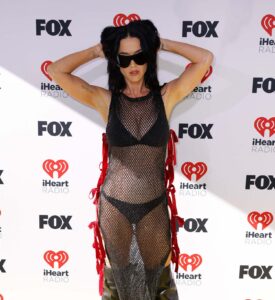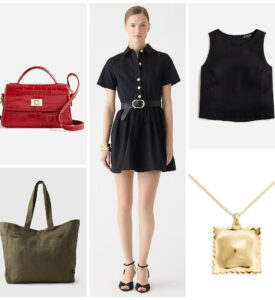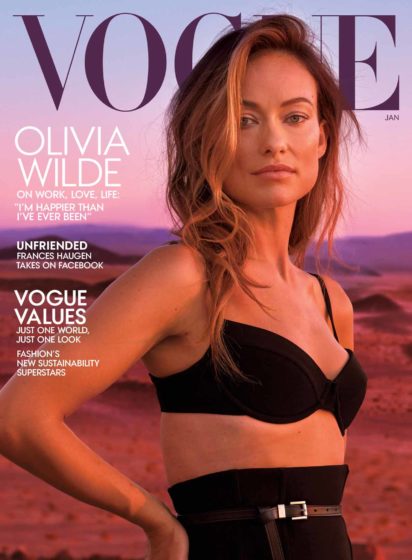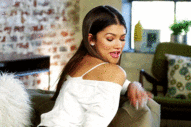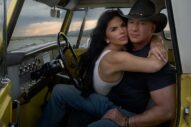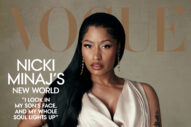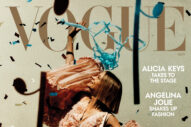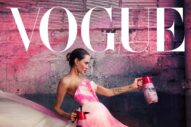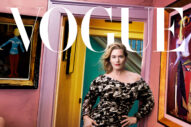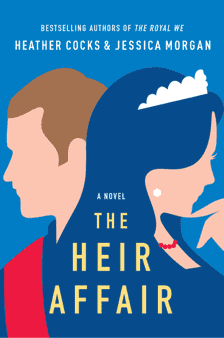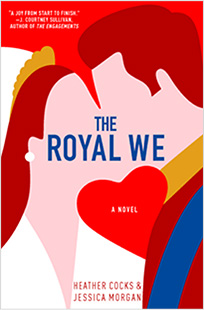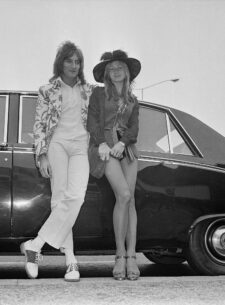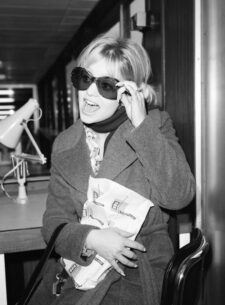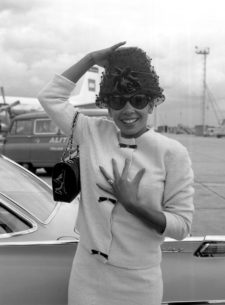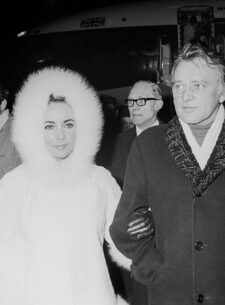Olivia Wilde’s much-anticipated Don’t Worry Darling doesn’t come out until September, so this feels a little earlier for a Vogue cover than you’d typically see. But Anna and Co. were probably impatient to capitalize on this moment in the gossip life cycle, rather than waiting until there’s a news peg (besides, they can always put Florence Pugh and/or Harry on later). And so Olivia Wilde went out to the desert with Annie Leibovitz, and the best I can say is that… photographs ensued.
The story by Alexandra Schwartz is a very thorough retelling of Olivia’s family background, with some professional compliments from Beanie Feldstein (star of Wilde’s first movie, Booksmart), her DWD production designer, and the DWD cinematographer, though all he has to offer is how young Olivia looks. No one else from the movie speaks in here. I did not expect Harry Styles to appear anywhere, because I think they are being fairly careful with good reason, but I am a bit surprised there isn’t a quote from Florence Pugh? Maybe she’s working right now and isn’t reachable. Luckily, Wilde is chatty, and had a lot to say about the way her movies approach their female characters — and the way the women, versus the men, approach them:
Alice is the film’s protagonist; Jack is a supporting part. “I cannot tell you how many men read the script and said, ‘Unless it’s a two-hander, unless I’m in as much—or more—of the script than she is, it’s not worth it,’ ” Wilde says. “And it’s not their fault. They’ve been raised with this kind of innate misogyny as a part of their society: ‘If I don’t take up enough space, I won’t seem valuable.’ Actresses—highly trained, highly valuable actresses—have appeared in supporting roles in countless films. We don’t think about it in terms of, ‘My role is not as big as his.’ It’s, ‘Oh, it’s a good role. It’s a role where I have a brain.’ ”
I contend at this point in the conversation, in 20-freaking-21, actors absolutely can shoulder a little of the blame for their egos on this point. But I see her point. And some of the dynamic she describes may be because those trained, valuable actresses took supporting roles — or “lead” roles that were notably smaller than their male counterparts — because that’s simply all that was there. Whereas today, you have a whole lot more women creating content, and ergo developing the kind of parts where they can run the show and there doesn’t have to be a lead actor with the same screen time. Or even a lead actor at all. I know there were guys in Booksmart but I can’t even picture who they were, much less remember their names, and that’s very refreshing. Here’s hoping for more movies that aren’t afraid to do that.

